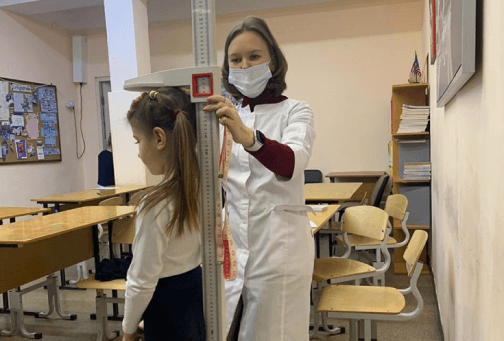Over the last 40 years, the prevalence of obesity among children increased five- to eight-fold.
According to experts’ estimates, 254 million children aged 5-19 will be overweight by 2030.
The prevalence of obesity among children aged 14 or less in the Sverdlovsk Region is 20% higher than Russia’s average according to the Russian Federal Service for State Statistics.

Medical screening of 3,000 seven-year old children (as part of the 2020 WHO project) in 70 schools of Yekaterinburg revealed that 27% of children were overweight, including 10% of children having obesity.
Obesity at an early age increases the risk of adult obesity and may cause major complications: diabetes, cardiovascular diseases, infertility and miscarriage, sleep-disordered breathing (apnea), untimely death etc.
The risk of some cancer diseases is also linked to overweight. Such risk increases with the increase in the body mass index. Intervention on obesity before puberty is considered to be most effective.
Measures intended to reduce excess weight among children provided for by the project are not covered by compulsory medical insurance, but such interventions are worth implementing due to their effectiveness and significance.
The project adopts a comprehensive approach to prevent overweight and obesity among children in the Sverdlovsk Region: early identification of excess weight among children; testing and introducing an efficient comprehensive model to prevent children’s obesity; developing behavioural mechanisms to preserve motivation of children and parents for long-term weight management through information support and remote medical assistance.
The project will help to avoid in the future the aforementioned diseases and the respective treatment amounting to at least 74.8 million roubles.